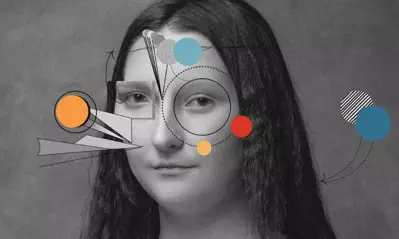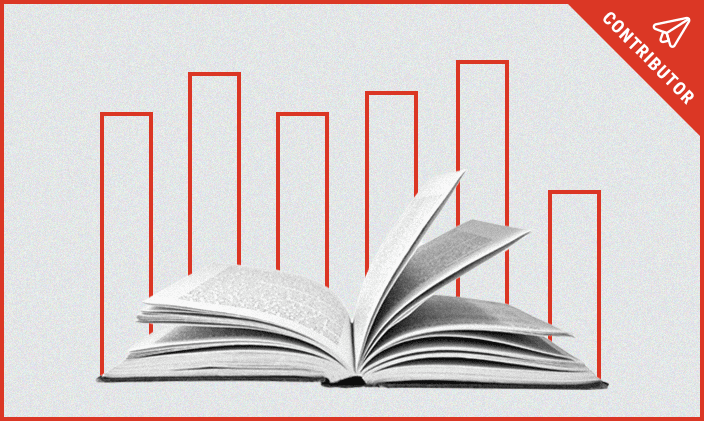
Online Data Science Degree

Your college transcripts could help you graduate sooner and for less
We’ll help you find out what prior college credits will transfer into your degree to save time and money—it’s free.

Your college transcripts could help you graduate sooner and for less
We’ll help you find out what prior college credits will transfer into your degree to save time and money—it’s free.
Bachelor of Science in Data Science
With a Bachelor of Science in Data Science degree, you’ll gain the fundamental knowledge needed to analyze, manipulate and process data sets using statistical software. Learn extract, transform and load (ETL) processes for integrating data sets for business intelligence platforms. Discover techniques to transform structured and unstructured data sets into meaningful information to identify patterns and drive strategic decision making.
Our online data science degree can help you develop career-relevant skills in data mining, data modeling, machine learning, programming languages and statistical analysis. The practical application of these skills in your courses will help you prepare for a variety of employment opportunities in data science and business or IT management.
Ignite Your Passion
Start when you're ready
Register by:
Courses
Browse courses for your online data science degree
Education should hold practical value. That’s why our data science program is built with input from industry leaders. Our courses, activities and assignments map to career-relevant skills that prepare students for diverse data science roles, such as data analysts or database architects.
Look for this icon to see which skills you’ll learn in a course.
Online data science degree requirements
You’ll need 120 credits (3 credits per course) to complete this online Bachelor of Science in Data Science degree. Your course schedule may vary based on transferable credits or credits earned through the University's Prior Learning Assessment.
You’ll learn about programming, database administration, exploratory data analysis and predictive modeling. Perform statistical analyses, analyze various types of data sets, evaluate business decisions with data mining and modeling, and communicate business strategies via data visualization and storytelling. Applying what you learn to real-world business scenarios will provide you with skills and knowledge applicable to your career.
Plan your schedule
Your academic counselor will help schedule your courses for a Bachelor of Science in Data Science degree.
As a student pursuing the Bachelor of Science in Data Science degree, you can transition into a Master of Business Administration (MBA), Master of Management (MM), Master of Information Systems or a Master of Science in Data Science. You may complete up to three courses (or a direct equivalency) as part of your electives while finishing your bachelor’s degree.
Customize your online data science degree
Tailor your bachelor’s in data science program to your interests by selecting a certificate to add within the credit requirements. At any time through your first year, you can choose to pursue any of our undergraduate business certificates or information technology certificates alongside your bachelor’s degree. Graduating with a certificate can allow you to specialize in a specific area or supplement your data science knowledge.
Certificate options you might consider for your data science degree include:
Earn career-relevant skills in weeks – not years.
Learning shouldn’t take years to put into practice. That’s why we’re empowering you to build career-relevant skills with every five- to six-week course.
We’ve worked with the labor market researcher Lightcast to identify in-demand skills for occupations and mapped those to our related associate, bachelor’s and master’s degree programs.
Tuition
Paying for school
Tuition is based on number of credit hours per course. Courses are typically 3 credits, but can range from 1-6 credits. Costs do not include savings opportunities like transfer credits and scholarships.
What affects the overall cost of my program?
Your full program cost can vary by:
- Savings opportunities. Your cost could be reduced with eligible transfer credits, scholarships, employer discounts and more. Students with eligible credits and relevant experience on average saved $11K and 1 year off their undergraduate degree at University of Phoenix.
With our Tuition Guarantee, you pay one flat, affordable rate from the moment you enroll to the day you graduate from your program.
Discover ways to save time and money on your degree with our Savings Explorer® tool:
Other ways to save on time and tuition
Because we believe everyone deserves an affordable education, we work hard to help our students achieve one. Here’s a few ways you can save time, save money and avoid starting from scratch.
Transfer credits
Your prior eligible college credits can lower your cost and help you graduate sooner. As a transfer-friendly university, we accept eligible credits from 5,000+ accredited institutions.
Employer tuition benefits
Are you employed? Check to see if your employer has an alliance agreement with us for education benefits. This can help you save money while gaining skills that could apply to your job.
Credit for life experience
We look at all your relevant experience, from parenting to past jobs, to help you get the college credits you deserve. For every 3 credits earned, shave 5 weeks off your degree.
- View 1
- View 2
- View 3

Budget & borrow
How to pay for college
Paying for school can be intimidating, but we’re here to help you make sense of it. Our finance advisors can walk you through your options like federal financial aid and savings opportunities to minimize your debt. Plus, we can help you figure out your financial plan.
Careers & Outcomes
What can you do with a Bachelor of Science in Data Science degree?
Our online data science degree strives to meet the growing demand for data science professionals who possess a combination of IT and business skills at various organizational levels and within multiple industries. You’ll learn how to apply your skills to real-world, on-the-job tasks like creating dashboards, conducting data analyses and completing web scraping exercises – all of which will help prepare you for your future career path.



17% growth
According to the Bureau of Labor Statistics , job growth for computer and information systems managers is projected to be much faster than average between 2023 and 2033.
The BLS Projected Growth for 2023-2033 is published by the US Bureau of Labor Statistics. This data reflects the BLS’ projections of national (not local) conditions. These data points are not specific to University of Phoenix students or graduates.
Data science industry spotlight
Data science is a field that spans various industries, such as information technology, health care, finance, manufacturing, transportation, hospitality and human resources. As a bachelor’s in data science student, you’ll learn key concepts, principles and techniques designed to prepare you to analyze data for several business applications.
48,000+
The number of openings for computer and information systems managers projected each year, on average, over the decade.
$127,180—$207,850[1]
The 25th to 75th percentile wage range estimate for computer and information systems managers in May 2022.
[1] The salary ranges are not specific to students or graduates of University of Phoenix. Actual outcomes vary based on multiple factors, including prior work experience, geographic location, and other factors specific to the individual. University of Phoenix does not guarantee employment, salary level or career advancement. BLS data is not geographically based.
Admissions
Apply for free – no application fee, no obligation.
Starting your online data science degree is a big decision — and we want you to feel great about it. That’s why we remove obstacles from your application.
- No SAT/ACT required
- No essay required
- We’ll request transcripts at no cost to you, when possible, and we accept eligible credits from over 5,000 accredited institutions.
How to enroll at University of Phoenix
Receive 1-on-1 support
You have a support team of real people you can lean on. And our academic counselors, who are with you every step of the way, have earned a 5-star rating from 90% of our surveyed students.[1] Start a conversation with an enrollment representative today.
[1] Transactional Survey, August 2021-22 (18,645 respondents)

Call or chat with us 7 days a week.

Gabriel G., Enrollment Rep
Receive 1-on-1 support
You have a support team of real people you can lean on. And our academic counselors, who are with you every step of the way, have earned a 5-star rating from 85% of our surveyed students.[1]
[1] Transactional Survey, September 2022-August 2023 (23,739 respondents)
Start a conversation with an enrollment representative today.
Call us at 844-937-8679 or chat with us 7 days a week.
Data Science Student Experience
Balance it all: work, family and school
Focus on just one 5-week course at a time, while still completing your data science degree on time. Plus, enjoy the freedom to learn when you want with a 24/7 online classroom.
Online learning resources for you
Your bachelor’s in data science includes online learning resources like test prep. You’ll also participate in data science and programming labs to demonstrate your data mining and modeling skills.
Around-the-clock support and resourcess
You have a support team available up to 14 hours a day, 5 days a week.

Faculty Spotlight
Learn from professionals working in IT
As a university built for working adults, we believe you should be taught by faculty who practice what they teach. The IT curriculum they teach today is designed to help you make an impact in your day-to-day work tomorrow, bridging the gap between academics and industry knowledge.

Daniel D'Urso, MBA, MS Computer Science
Faculty, College of Business and Information Technology
Accreditation
Accredited for 45+ years
Since 1978, University of Phoenix has maintained institutional accreditation by the Higher Learning Commission (HLC), hlcommission.org . Learn more about the value of University of Phoenix accreditation and how it benefits our students.
Data science-related articles
Frequently asked questions about the Bachelor of Science in Data Science degree
While widely available, not all programs are available to residents of all states. Please check with a University Enrollment Representative.





